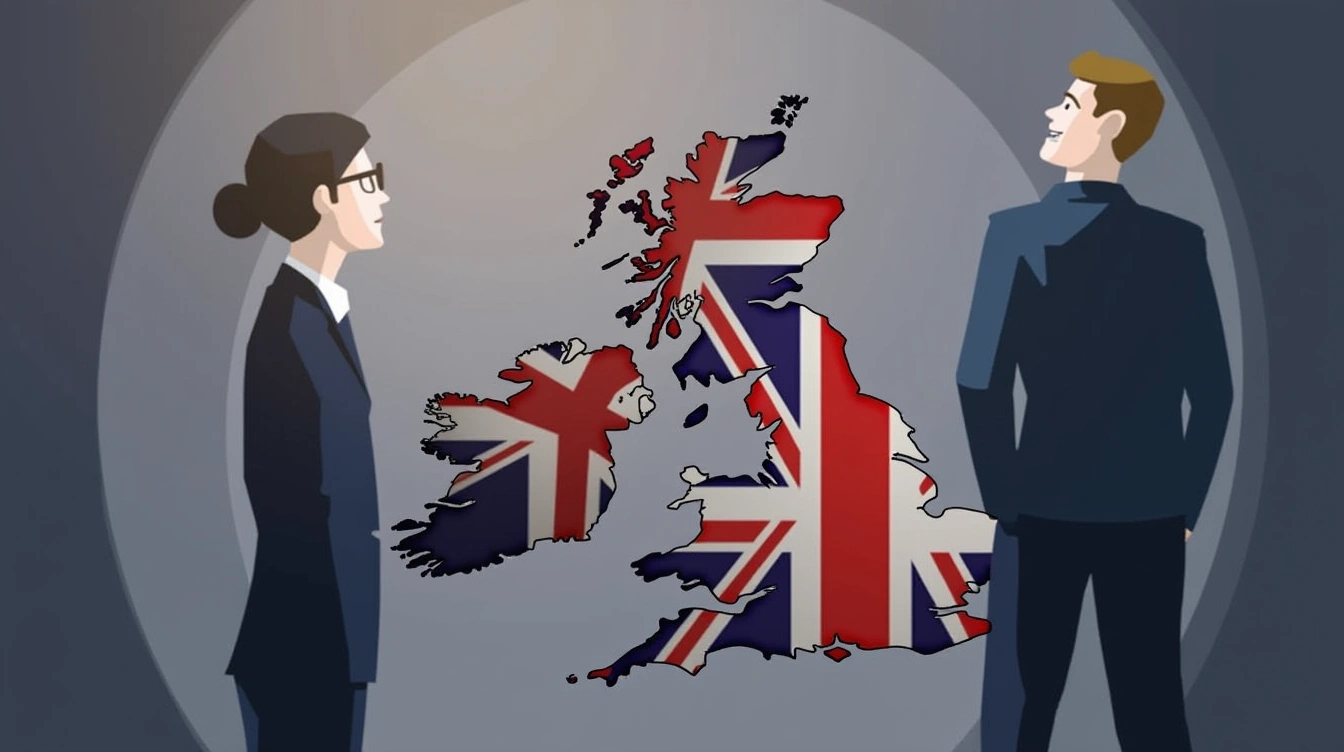Legal Landscape Shift for UK Enterprises Post-Brexit
The Brexit legal impact has been profound, fundamentally reshaping the framework within which UK businesses operate. One immediate change was the end of the automatic applicability of EU law, requiring UK enterprises to adapt swiftly to changes in UK business law. This shift means companies must now navigate a complex mixture of retained EU rules and newly established UK statutes, affecting contracts, trade regulations, and compliance requirements.
Government and regulatory bodies responded by introducing tailored guidelines that reflect the UK’s independent legal stance. Notable regulatory changes after Brexit include revised customs procedures, data transfer regulations, and sector-specific compliance rules, all designed to ensure smooth trade and protect domestic interests. For example, the UK’s Financial Conduct Authority updated standards to replace some EU directives with UK-specific rules.
Additional reading : Unforeseen legal hurdles for uk businesses: what lies ahead?
Differentiating the pre- and post-Brexit legal frameworks is crucial. Before Brexit, EU law directly applied, simplifying cross-border operations within the bloc. Post-Brexit, UK laws have diverged, introducing new legal obligations that demand businesses reassess contracts and operational strategies. Understanding these regulatory changes after Brexit is essential for legal compliance, risk management, and capitalizing on post-Brexit opportunities.
Navigating Compliance Obligations
Understanding the Brexit compliance requirements is crucial for businesses operating across UK and EU borders. These requirements have significantly changed post-Brexit, affecting how companies manage their business legal responsibilities. The shift impacts reporting, auditing, and governance standards, making it essential to adapt swiftly.
This might interest you : Exploring the legal pathways: how uk firms successfully manage mergers and acquisitions
Post-Brexit compliance means more than just understanding new laws; it requires businesses to review and update internal controls and processes. For example, companies must ensure their financial reports meet updated UK standards instead of EU directives. Auditing protocols may also demand additional documentation reflecting trade adjustments or tariffs applied after Brexit.
To stay ahead, firms should take practical steps such as:
- Regularly reviewing regulatory updates related to Brexit compliance requirements
- Training staff on altered governance frameworks
- Implementing compliance software that tracks legal changes and deadlines
By prioritizing these adjustments, businesses can mitigate risks linked to non-compliance. This proactive approach supports a smoother transition through the complexities of post-Brexit compliance, safeguarding both reputation and operational integrity.
Trade Law and Cross-Border Operations
Post-Brexit, trade law between the UK and EU has undergone significant changes impacting cross-border operations. The end of the free movement of goods means businesses must now navigate new customs procedures and comply with updated import/export regulations post-Brexit.
When it comes to UK-EU trade agreements, companies must understand that trade is no longer frictionless. Customs declarations are mandatory for most shipments, requiring detailed documentation to prove origin and value. This shift demands adjustments in standard operating procedures and often the use of customs intermediaries.
Tariffs apply depending on product classification and country of origin, so correctly managing tariffs becomes crucial to avoid unexpected costs. Supply chain disruptions are common during border inspections, making planning and transparency essential.
For businesses trading across the UK-EU border, ensuring compliance with these evolving import/export regulations post-Brexit not only ensures smoother operations but also reduces the risk of penalties. Familiarity with the latest Brexit trade law helps reduce delays—optimizing logistics and maintaining customer satisfaction. Being proactive in adapting to these rules is the key to thriving in this new trade era.
Adapting Business Contracts and Agreements
After Brexit, businesses must focus on reviewing business contracts after Brexit to identify potential risks and ensure compliance with new regulations under Brexit contract law. A critical step is reassessing existing contracts to determine whether Brexit has altered the parties’ obligations or introduced unforeseen liabilities. This process is vital to mitigate exposure and maintain smooth commercial relationships.
Certain key clauses require particular attention. For example, force majeure provisions may need updating to include Brexit-related disruptions explicitly. Governing law and jurisdiction clauses should be revisited to clarify whether English law or EU member state law applies, affecting dispute resolution. Additionally, provisions related to tariffs, customs duties, and data protection might require renegotiation to reflect the evolving legal landscape.
Consider a business with supply contracts previously relying on seamless EU trade. The imposition of new customs checks can cause delays and additional costs, making contract revision necessary to redistribute risks fairly. Best practices involve early communication between parties, clear documentation of agreed changes, and involving legal advisors familiar with legal changes for agreements post-Brexit. Taking these steps ensures that contracts remain robust and enforceable amid ongoing regulatory shifts.
Employment Law and Workforce Management Adjustments
Understanding Brexit employment law changes is crucial for businesses managing their UK workforce or hiring EU nationals. Since Brexit, the UK has introduced new immigration rules affecting the right to work for EU citizens. Employers must now ensure strict UK workforce legal compliance by verifying work eligibility under the new points-based immigration system. This involves more rigorous checks to avoid penalties.
For UK citizens working abroad, the legal landscape has also shifted. Companies need to reassess contracts and benefits to align with international employment laws post-Brexit. Adjusting to these changes requires revising HR policies to accommodate altered workplace rights, such as data protection regulations and employee entitlement standards.
Adapting HR documents and employment contracts is essential. Key adjustments include explicit clauses covering immigration responsibilities, changes to working hours, and updated grievance procedures reflecting new workplace obligations. Proactively reviewing staffing after Brexit minimizes legal risks and ensures smoother workforce management.
Employers should regularly consult updated governmental guidance to stay compliant. Failing to adapt policies may lead to workforce disruption or legal challenges. By embracing these Brexit employment law changes, businesses can maintain a compliant, efficient, and resilient workforce.
Intellectual Property Protection Strategy
Brexit intellectual property challenges have reshaped how businesses protect their valuable assets. IP law UK post-Brexit now requires companies to reassess their approach to patents, trademarks, and copyrights. Territorial coverage has shifted; the UK no longer participates in EU-wide protections like the EU Trade Mark (EUTM) or Registered Community Design (RCD), meaning separate UK registrations are essential.
Businesses must act proactively to maintain protection of their intangible assets. For patents, the UK Intellectual Property Office (UKIPO) continues to grant UK patents independently, but European patents validated in the UK are now managed separately. Trademark holders need to secure UK trademark registrations alongside their European ones to ensure territorial protection is intact.
To protect business assets effectively after Brexit, firms should:
- Conduct a thorough audit of existing IP registrations covering the UK and EU.
- File new applications in the UK to replace expired or non-transferrable EU protections.
- Monitor changes in UK IP law regularly, as post-Brexit legislations continue to evolve.
Understanding the nuanced impact of Brexit intellectual property policies can safeguard a company’s competitive edge. For tailored guidance, consulting IP law experts remains a critical step to navigate this transformed legal landscape.
Adapting to Evolving Regulatory Frameworks
Staying current ensures compliance and strategic advantage.
Brexit regulatory changes have significantly reshaped the UK’s legal landscape, necessitating business adaptation post-Brexit across various sectors. Each industry faces tailored adjustments to regulations, making a one-size-fits-all approach ineffective. For example, the financial sector now operates under revised trading rules and reporting standards, while healthcare companies must navigate altered data protection and medical device regulations to maintain compliance.
Monitoring sector-specific regulation UK updates is crucial. Companies should establish robust channels to track legal changes through official government publications and dedicated regulatory bodies. The Financial Conduct Authority (FCA) and Medicines and Healthcare products Regulatory Agency (MHRA) offer timely guidance that can inform necessary operational adjustments.
To stay ahead, businesses can utilize resources like the UK Government’s legislation portal and sector watchdog newsletters. These tools provide early warnings and detailed explanations of evolving regulatory requirements, helping organizations avoid penalties and maintain market access. Proactive engagement with industry associations also aids in interpreting complex changes and sharing best practices.
In essence, continuous vigilance and leveraging authoritative resources empower UK businesses to adapt effectively amid ongoing Brexit regulatory changes and sector-specific challenges.
Practical Guidance for UK Enterprises
Navigating adapting business strategy Brexit requires a clear understanding of associated legal risks. UK businesses must first assess these risks meticulously to avoid costly non-compliance. For example, changes in import-export regulations and data protection laws can significantly impact operations. Identifying such areas early enables strategic planning to mitigate penalties and disruptions.
Seeking legal advice UK businesses is crucial at this stage. Experienced solicitors specializing in Brexit regulations offer tailored guidance to ensure firms remain compliant. This legal counsel can help interpret complex rules, draft necessary contracts, and update policies reflecting new statutes. Professional resources, including trade associations and government advisory services, supplement this support with practical tools and updates.
Effective Brexit compliance tips emphasize proactive business adaptation and growth strategies. Enterprises are encouraged to diversify supply chains, invest in training for evolving regulatory requirements, and explore new markets outside the EU. By embedding flexibility into their models and maintaining ongoing dialogue with legal experts, businesses can convert Brexit challenges into growth opportunities. Staying informed and agile is key to thriving in the post-Brexit commercial landscape.










